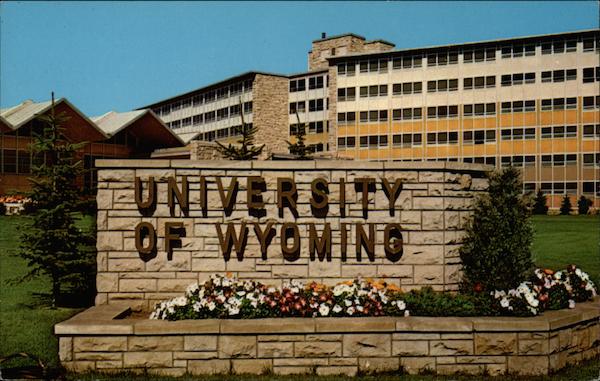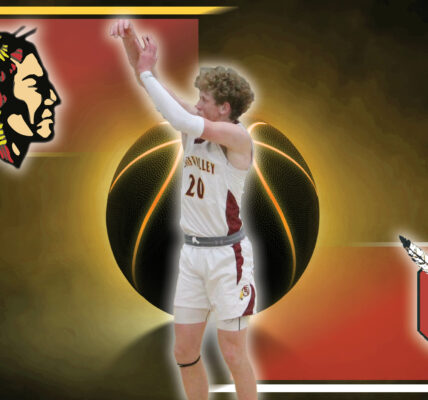Federal complaint alleges free speech and due process violations
By Sofia Saric and Aedan Hannon
Casper Star-Tribune
Via Wyoming News Exchange
CASPER —- A Laramie church elder who had his University of Wyoming tabling privileges revoked after he targeted a transgender student with a sign is suing the university’s president and dean of students for violating his constitutional rights.
Laramie Faith Community Church elder Todd Schmidt is challenging the constitutionality of UW’s one-year ban on his tabling in the UW Union. The ban came after he posted a sign that named a transgender student and challenged the student’s gender.
Schmidt’s attorneys argue his rights of free speech, due process, equal protection, and rights against unconstitutional conditions are being violated, the federal complaint, filed Thursday, states.
Last December, Schmidt set up a table in the Wyoming Union breezeway with a sign stating, “God Created Male and Female and Artemis Langford is a male.” Schmidt’s sign named Langford, a transgender student who had been accepted into a UW sorority. (Langford was subsequently sued by a handful of sorority members who challenged Langford’s admission into the organization. That case is ongoing.)
The ban means Schmidt can no longer set up a table inside the breezeway.
But he is still allowed to preach on campus, and has done so at a nearby plaza.
Free speech?
Still, he argues the ban negatively impacts his ability to spread his religious views because it makes it harder to have one-on-one conversations with students.
Schmidt also can’t place information about topics “like evolution, dinosaurs, age of the earth, propriety of COVID-19 restrictions, apologetics of the Christian faith, abortion, human sexuality issues, and appropriate forms of Christian worship” without a table, the complaint states.
“Schmidt’s Christian faith compels him to evangelize and share the gospel (good news of Jesus Christ) with others,” the complaint states. “Schmidt also believes from the Bible that God created human beings as either male or female, that this sex is fixed from conception and that this sex cannot be changed, regardless of what an individual person believes or wants to do.”
His attorneys argue the university has no justifiable reason to censor viewpoints about a person’s sex status, and the ban is a censorship on free speech.
They also contend that he wasn’t offered due process, as the university has “vague policies” that lack objective standards for decision-making in a situation such as this, the complaint states.
When asked for comment Friday, Schmidt said: “I have nothing to say right now,” adding that he needed to consult his attorneys. A spokesman for UW declined to comment on the lawsuit.
But in a letter to Schmidt notifying him of UW’s decision on the tabling ban, Dean of Students Ryan O’Neil justified the decision by citing the Wyoming Union’s reservation policies and the conclusion by the university’s Equal Opportunity Report and Response Unit, which reviews and investigates allegations of discrimination, harassment, sexual misconduct and workplace violence, that Schmidt violated UW’s policies “for discriminatory harassment of a current student.”
Legal questions
At the time, freedom of speech experts debated the legality of UW’s decision.
Public universities are considered government entities, so they operate under a different set of legal standards than private universities.
This means their actions are subject to the First Amendment, which opens the door for Schmidt’s lawsuit. Still, those rights have limits.
“If someone wants to argue they have freedom of faith on a college campus, they do. They can say a prayer silently or otherwise on their own time and their own space. That doesn’t mean the university has an obligation to give them a pulpit,” Ken Paulson, the director of the Free Speech Center at Middle Tennessee State University, told the Star-Tribune in December.
Douglas J. Mason, a Pinedale-based attorney representing Schmidt, declined to comment Friday. Nathan W. Kellum, an attorney with the Center for Religious Expression, is also representing Schmidt; he did not respond to a request for comment.
Past issues
Schmidt’s presence on campus has stirred up other issues.
A few days after he posted the sign, he received a trespass warning from police because he showed up in his car outside of a sorority that admitted Langford.
In February, Schmidt told the Star-Tribune that he was in the area because he was making a DoorDash delivery there.
He then rang the doorbell of the Kappa Kappa Gamma sorority house with the intention of having “a conversation” with sorority members. The University of Wyoming listed “multiple complaints,” as one of the reasons for the one year suspension, the lawsuit states.
But, his attorneys argue, Schmidt had never received any verbal warnings from anyone affiliated with UW about student complaints or anything else prior to this incident.
Schmidt is seeking damages, but the amount was not disclosed in the lawsuit.





